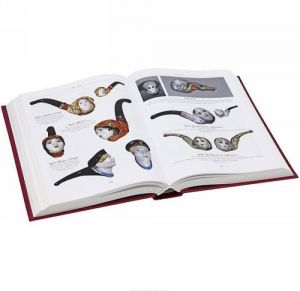Monarchy is a form of government in which the ruling power absolutely belongs to a single person and is commonly passed over by succession. For more than a millennium Russia was a monarchy. During that period it grew from a small principality in the east of Europe into a large and mighty state - the Russian Empire, the territory of which spread from the Baltic Sea to the Pacific Ocean. In the course of many centuries the Russian rulers had different titles - Princes, Grand Princes, Tsars and Emperors. The authors of the present publication have named this volume The Monarchs of Russia, as this name corresponds most exactly to the content of the above-mentioned titles. The monarch concentrated in his or her hands supreme state, military and judicial power. In the past the monarch - the Lord's Anointed Sovereign - was a symbol of continuity and stability. He (or she) was regarded as a guarantee of the observance of national interests and of the state's integrity...
Monarchy is a form of government in which the ruling power absolutely belongs to a single person and is commonly passed over by succession. For more than a millennium Russia was a monarchy. During that period it grew from a small principality in the east of Europe into a large and mighty state - the Russian Empire, the territory of which spread from the Baltic Sea to the Pacific Ocean. In the course of many centuries the Russian rulers had different titles - Princes, Grand Princes, Tsars and Emperors. The authors of the present publication have named this volume The Monarchs of Russia, as this name corresponds most exactly to the content of the above-mentioned titles. The monarch concentrated in his or her hands supreme state, military and judicial power. In the past the monarch - the Lord's Anointed Sovereign - was a symbol of continuity and stability. He (or she) was regarded as a guarantee of the observance of national interests and of the state's integrity...













